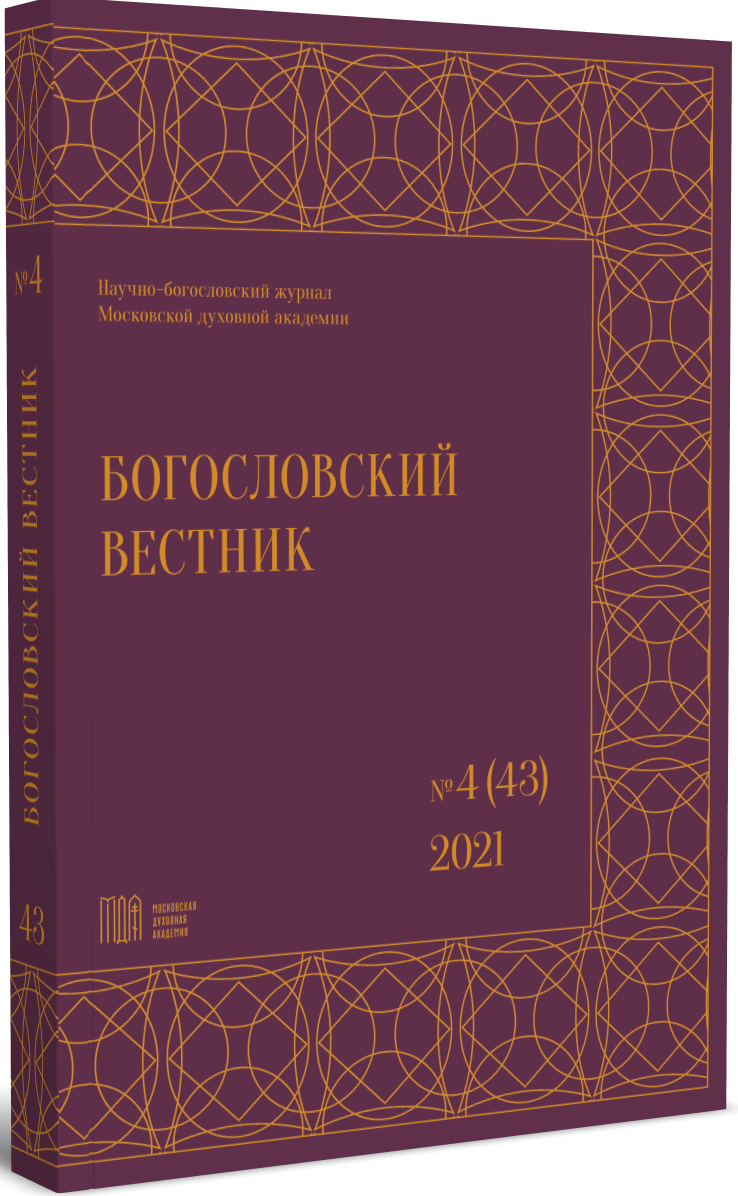О некоторых архаических чертах в восприятии категорий «святость» и «грех» в народном православии
(почитание Земли-Матери и его место в русской религиозности)
DOI:
https://doi.org/10.31802/GB.2021.43.4.017Ключевые слова:
народное православие, русская религиозность, святость, грех, земля-мать, культ плодородия, архаические представленияАннотация
В статье рассматриваются особенности народного восприятия таких основополагающих мировоззренческих категорий, как святость и грех, которые связаны с архаическими представлениями о сакральности земли и с культом плодородия. После принятия крещения в картине мира восточных славян вместе с христианскими ценностями продолжали существовать и некоторые архаические элементы. Многие из них органично интегрировались в православную народную традицию и стали значимой частью религиозного сознания. Однако народные представления о грехе не всегда полностью совпадали с церковными этическими установлениями и каноническими нормами. Народная вера содержит ряд запретов и ограничений, прежде всего бытового и обрядового характера, которые не только не могут быть напрямую выведены из текста Священного Писания или святоотеческого наследия, но едва ли вообще могут быть сопряжены с православным учением. Такое расхождение во многом обусловлено специфическими особенностями восприятия святости, восходящего к дохристианской эпохе и связанного с архаическими представлениями о святости как об избытке жизненных сил, носительницей которых является, в частности, земля — подательница благ и кормилица человека. Следы этого почитания, прочно укоренённого в культурной памяти народа, имеются не только в произведениях фольклорного жанра, но и в бытовых практиках и даже религиозных обычаях, многие из которых актуальны и по сей день. Рудиментами подобного благоговейного отношения к земле, свойственного не только нашим предкам, но и современникам, следует признать, среди прочего, бытование специфических запретов на сельскохозяйственные работы в определённые православные праздники, а также обыкновение собирать лекарственные растения в особые дни церковного календаря.
Скачивания
Библиографические ссылки
Jakobson R. Slavic Mythology // Funk and Wagnall’s Standard Dictionary of Folklore, Mythology and Legend. 1972. P. 1025–1028.
Агапкина Т. А. Духов день // Славянские древности. Этнолингвистический словарь: В 5 т. / под общ. ред. Н. И. Толстого. Т. 2: Д–К (Крошки). М., 1999. С. 157–158.
Апокрифы Древней Руси / сост., предисл. М. В. Рождественской. СПб.: Амфора, 2002.
Зализняк А. А. Проблемы славяно-иранских языковых отношений древнейшего периода // Вопросы славянского языкознания. 1962. Вып. 6. С. 28–47.
«Народная Библия»: восточнославянские этиологические легенды / сост. и коммент. О. В. Беловой; отв. ред. В. Я. Петрухин. М.: Индрик, 2004.
Некрылова А. Ф. Русский традиционный календарь на каждый день и для каждого дома. СПб.: Азбука-классика, 2009.
Основы социальной концепции Русской Православной Церкви. М.: Отдел внешних церковных связей, 2008.
Русский народ (Вера и обычаи. Работа и быт. Будни и праздники). Этнографическая энциклопедия в 2 т. / гл. ред., сост. О. А. Платонов. М.: Институт русской цивилизации, 2013.
Смирнов С. И. Исповедь земле // БВ. 1912. Т. 4. № 11. С. 501–537.
Страхов А. Б. Культ хлеба у восточных славян. Опыт этнолингвистического исследования. München: Verlag Otto Sagner, 1991.
Толстой Н. И. Грех // Славянские древности. Этнолингвистический словарь: В 5 т. / под общ. ред. Н. И. Толстого. Т. 1: А–Г. М.: Институт славяноведения РАН — Международные отношения, 1995. С. 544–546.
Трубачёв О. Н. Из славяно-иранских лексических отношений // Этимология. 1965. Материалы и исследования по индоевропейским и другим языкам. М.: Наука, 1967. С. 3–81.
Трубачёв О. Н. Труды по этимологии: слово, история, культура. В 4 т. М.: Языки славянской культуры, 2005. Т. 2.
Живов В. М. Грѣховодник. К истории слова и понятия // Очерки исторической семантики русского языка раннего Нового времени / под ред. В. М. Живова. М.: Языки славянских культур, 2009. С. 405–430.
Журавлёв А. Ф. Эволюции смыслов. М.: ЯСК, 2016.
Сережко Т. А. Народная религиозность в современной крестьянской субкультуре: дисс. на соискание учёной степени кандидата философских наук: 24.00.01. Белгород, 2010.
Топоров В. Н. К реконструкции балто-славянского мифологического образа Земли-Матери *Zemi̯a & *Mātē (*Mati) // Балто-славянские исследования 1998–1999. XIV. Сборник научных трудов. М.: Индрик, 2000. С. 239—371.
Топоров В. Н. Об одном архаичном индоевропейском элементе в древнерусской духовной культуре — *svęt // Языки культуры и проблемы переводимости. М.: Наука, 1987. С. 184–252.
Топоров В. Н. Из славянской языческой терминологии: индоевропейские истоки и тенденции развития // Этимология. 1986–1987 / под ред. Ж. Ж. Варбот, Л. А. Гиндина, Г. А. Климова, В. А. Меркуловой, В. Н. Топорова, О. Н. Трубачева. М.: Наука, 1989. С. 3–50.
Топоров В. Н. Святость и святые в русской духовной культуре: В 2 т. Т. 1. Первый век христианства на Руси. М.: Гнозис; Школа «Языки русской культуры», 1995.
Федотов Г. П. Стихи духовные (Русская народная вера по духовным стихам) / вступ. ст. Н. И. Толстого. М.: Прогресс; Гнозис, 1991.
Федотов Г. П. Собрание сочинений в 12 т. Т. 10: Русская религиозность. Часть I. Христианство Киевской Руси. X–XIII вв. М.: Sam and Sam, 2015.
Элиаде М. Священное и мирское / пер. с фр., предисл. и коммент. Н. К. Гарбовского. М.: МГУ, 1994.
Загрузки
Опубликован
Как цитировать
Лицензия

Это произведение доступно по лицензии Creative Commons «Attribution-ShareAlike» («Атрибуция — На тех же условиях») 4.0 Всемирная.








